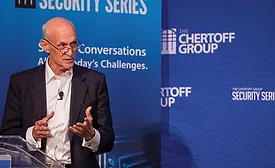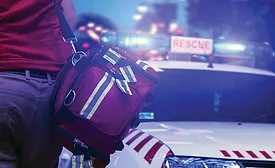Home » counterterrorism
Articles Tagged with ''counterterrorism''
A Security 500 Thought Leader Profile
Read More
Scott Starkey: Keep the Water Flowing
A Security 500 Thought Leader Profile
November 1, 2017
Over the Horizon: Emerging Security Threats and Risks to the Enterprise
What issues, concerns and risks will you be facing in the near future?
October 1, 2017
Money and Terror: How the Financial Sector is Hitting Back Against International Crime
In the wake of 9/11, the U.S. Treasury was given the green light to go after rogue banks and terrorism profiteers. Now, how can private sector businesses join the fight?
August 1, 2017
Growing Terrorism Threats Lead Sports Security Leaders to Change Tactics
Security directors in sports venues need to address challenges without undermining the fan fun and entertainment.
July 1, 2017
Sign-up to receive top management & result-driven techniques in the industry.
Join over 20,000+ industry leaders who receive our premium content.
SIGN UP TODAY!Copyright ©2026. All Rights Reserved BNP Media.
Design, CMS, Hosting & Web Development :: ePublishing










